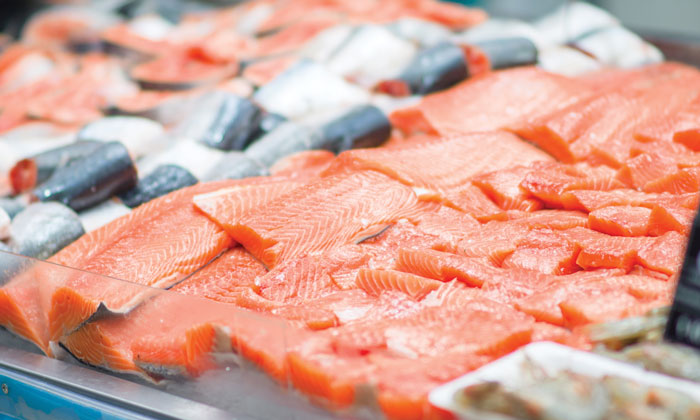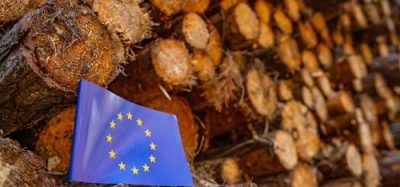MSC marks 20th anniversary with release of 2020 strategy
- Like
- Digg
- Del
- Tumblr
- VKontakte
- Buffer
- Love This
- Odnoklassniki
- Meneame
- Blogger
- Amazon
- Yahoo Mail
- Gmail
- AOL
- Newsvine
- HackerNews
- Evernote
- MySpace
- Mail.ru
- Viadeo
- Line
- Comments
- Yummly
- SMS
- Viber
- Telegram
- Subscribe
- Skype
- Facebook Messenger
- Kakao
- LiveJournal
- Yammer
- Edgar
- Fintel
- Mix
- Instapaper
- Copy Link
Posted: 25 April 2017 | New Food | No comments yet
Today, as the Marine Stewardship Council (MSC) marks 20 years since its creation, the organisation set out its strategy for the years ahead.


The plan includes the MSC’s aspiration for a more than a third of global marine catch to be certified or engaged in the MSC program by 2030. The MSC’s ambition is to strengthen engagement and impact in the Global South, Large Marine Ecosystems (LMEs), priority markets and species, and with consumers, while continuing to deliver value to MSC certified fisheries.
The release of the MSC’s strategic framework is accompanied by a historical narrative, outlining the organisation’s journey to date. Written by independent journalists from the Press Association, Sustainable seafood: the first 20 years gives a compelling account of the MSC’s origin, challenges and milestones to date.
“20 years ago, the MSC was a bold new idea developed by WWF and Unilever to address the challenge of unsustainable fishing,” says Rupert Howes, MSC’s Chief Executive. “They wanted to create a market based mechanism that would connect seafood producers and consumers through a credible third party certification and labelling program. This program would recognise and reward existing good practice, but critically, incentivise and drive real and lasting change where needed to ensure healthy oceans and seafood supplies for the future. 20 years on this bold innovation has become a proven concept, and a global sustainable seafood movement has emerged to work with all stakeholders to drive this transformation.’’
Learning from the past
The narrative details how the MSC has evolved to keep pace and respond to new science and industry best practice, strengthening governance and requirements to address stakeholder concerns. Thanks to the support of many organisations, the MSC has become the most widely recognised certification scheme for sustainable seafood.
Early adopters in the fishing sector included Western Australian rock lobster, Alaskan salmon and New Zealand hoki fisheries. Their efforts were recognised by commitments from international retailers and brands. The MSC also received generous funding and core support from the David and Lucile Packard Foundation, Walton Family Foundation, and the Dutch Postcode Lottery, along with many other foundations and supporters.
Today 12% of global marine catch is certified to the MSC Fisheries Standard. MSC certified fisheries have delivered demonstrable improvements, managing healthy fish stocks and minimising their impact on the environment.
“There is a growing evidence base that, through the leadership and commitment of our partners, real improvements are being delivered,” says Howes. “As we celebrate our 20th anniversary I would like to acknowledge and give special thanks to all our partners – most importantly, to our certified fisheries; and also to the myriad of engaged and certified seafood businesses throughout the supply chain; to our accredited certifiers; and to the NGO community whose engagement in the third-party process ensures robust and credible outcomes.
“Thank you as well to our funders and to our governance bodies who give their time, energy and expertise to help the MSC navigate the complexities of the sustainable seafood world. It has been a shared journey with many bumps in the road but also one that has involved a lot of learning, refinement and improvements to ensure MSC remains fit for purpose and more able to deliver our shared vision for our oceans,” he continues.
Looking forward to 2020, the MSC’s strategic priorities
Recognising and rewarding sustainable fisheries and incentivising improvement globally; today 14% of global marine catch is either certified or engaged in the MSC program. The MSC aims to increase this figure to 20% by 2020, with an ambition of more than a third by 2030. To achieve this the MSC will focus efforts on ecosystems currently underrepresented in the MSC program, but where catches and the threat to biodiversity are high. In addition to tuna and small pelagic species, new priority species will include squid, octopus, crab and seaweed. The MSC will also deliver new tools to better enable fisheries in the Global South to progress towards MSC certification. Over the next three years the MSC aims to double the number of fisheries from the Global South involved in its program.
Ensuring MSC certifications are credible and reflect global best practice; the MSC will maintain its focus on efforts to ensure we continue to meet global best practice in sustainable fisheries management. New measures, for example for labour practices, will be introduced, along with new tools and systems to make the certification process more efficient, credible and user-friendly, such as digital auditing tools.
Cultivating and expanding sustainable seafood markets; the MSC will deepen engagement with key commercial partners and focus on building demand in markets that offer the biggest incentives to drive change on the water. This includes European markets of Germany, the UK, France, Spain and Italy, as well as the US, China and Japan.
Building public awareness and support and demonstrating science and impact; the MSC will increase its scientific engagement and research, upgrading monitoring and evaluation systems and engaging in the wider ocean science and policy community. It will also continue to invest in research to understand consumer demand for sustainable seafood and will deliver campaigns to build public awareness and support for sustainable fishing and the MSC’s ecolabel.
“While there is much to celebrate, there is also a growing sense of urgency to address unsustainable fishing and deliver Sustainable Development Goals. This is a critical time for our oceans. The MSC’s new strategy prioritises those parts of the world, species and markets which can have the most significant impact on the health of our oceans. It remains true to the vision of our founders, building on the lessons of the past,” concludes Howes.









